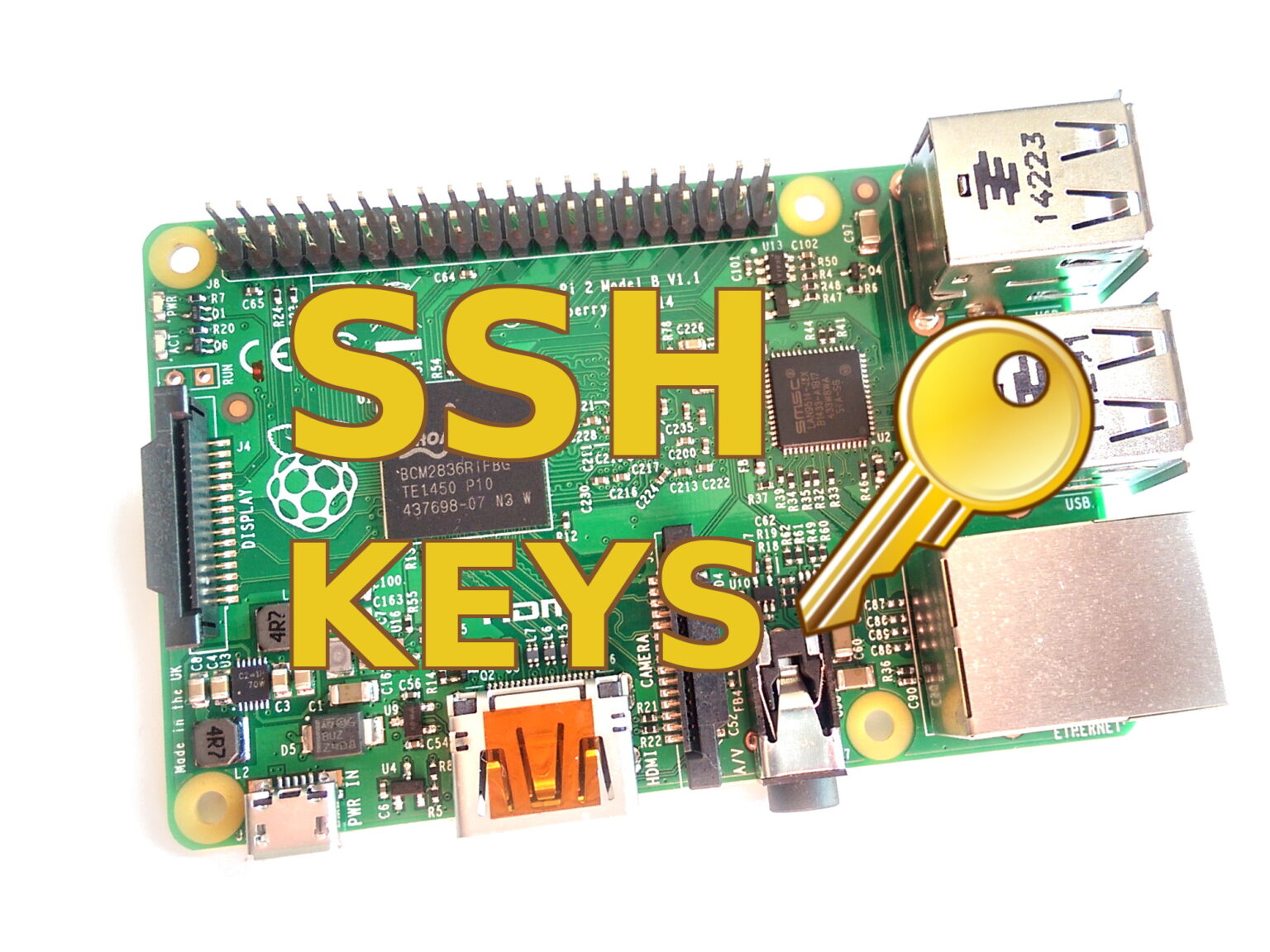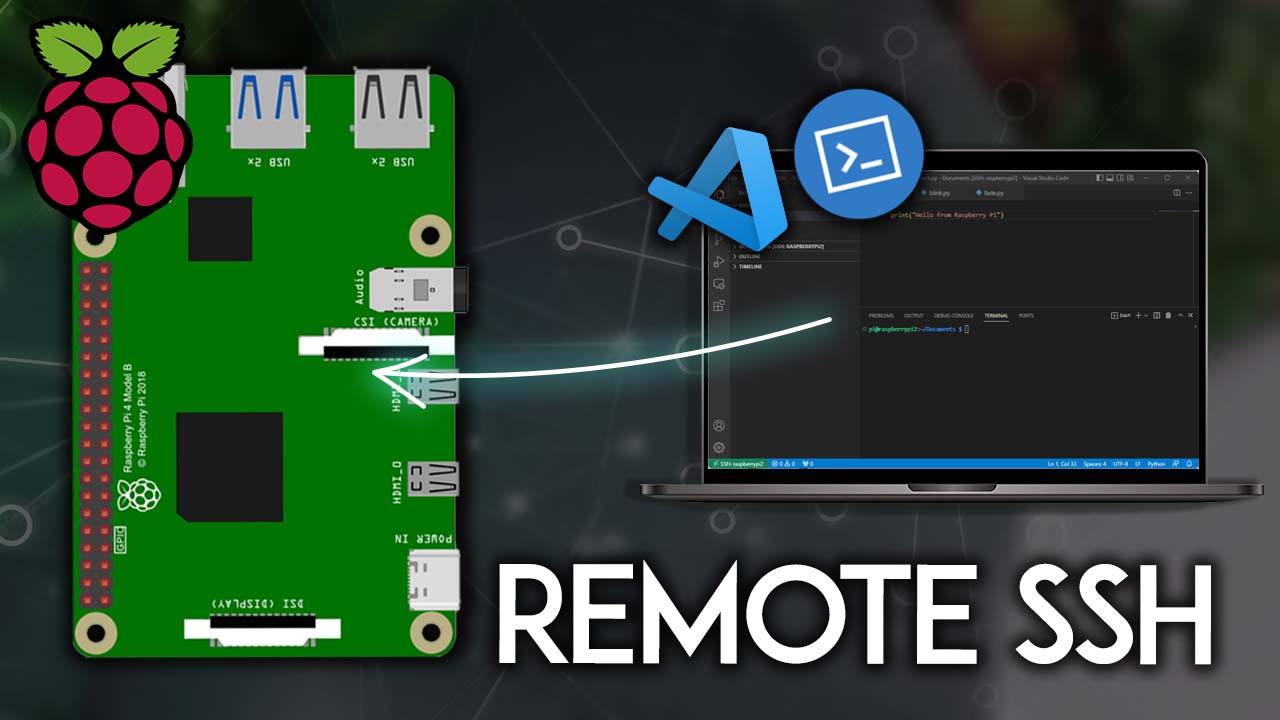Best Remote IoT Platform For Raspberry Pi SSH Keys | 2024
Are you ready to unlock the full potential of your Internet of Things (IoT) projects with the Raspberry Pi? Securing your Raspberry Pi devices with robust remote management is no longer a luxury it's an absolute necessity in today's interconnected world.
The digital landscape is rapidly evolving, and the demand for secure and efficient remote management of IoT devices is at an all-time high. The Raspberry Pi, with its versatility and affordability, has become a cornerstone of countless projects, from home automation to industrial monitoring. However, with increased connectivity comes increased vulnerability. This article will explore the critical role of Secure Shell (SSH) keys in fortifying your Raspberry Pi devices and guide you through the process of selecting the best remote IoT platform to manage them effectively.
Before we proceed, let's clarify what SSH keys are and why they are indispensable for Raspberry Pi security. Think of SSH keys as digital keys that unlock secure access to your Raspberry Pi. They utilize cryptography to establish a secure connection, ensuring that all data transmitted between your device and the remote platform is encrypted and protected from unauthorized access. SSH keys eliminate the need for password-based authentication, which is more susceptible to brute-force attacks and other security breaches. They provide a significantly more secure and convenient method for managing your devices remotely.
- Salahbrooks The Rise Of A Digital Sensation
- Noodle Magazine The Ultimate Guide To Your Favorite Noodle Dishes
Heres why SSH keys are essential for Raspberry Pi:
- Enhanced Security: SSH keys employ cryptographic principles to secure your Raspberry Pi, safeguarding it from unauthorized access and potential cyber threats. They are significantly more secure than password-based authentication.
- Secure Remote Access: SSH keys allow you to connect to your Raspberry Pi from anywhere in the world, enabling you to manage your devices, transfer files, and execute commands securely and effortlessly.
- Simplified Management: Once SSH keys are configured, managing your Raspberry Pi becomes much easier. You can automate tasks, monitor system performance, and troubleshoot issues remotely without the need for physical access.
- Data Integrity: With SSH keys, you can be confident that your data remains protected during transmission, ensuring the integrity of your projects and valuable information.
Integrating SSH keys with your Raspberry Pi ensures that your data is protected while maintaining seamless connectivity. In this piece, we'll look at how to set up SSH keys on your Raspberry Pi utilizing the remote IoT platform. The best free remote IoT platforms that are compatible with SSH keys for your Raspberry Pi will also be explored in this article, with a focus on ease of use, security, and features. In this article, we'll delve into the best platforms for remote IoT that support SSH keys for Raspberry Pi, and we'll also provide some pro tips to get you started.
Imagine managing your Raspberry Pi devices remotely without needing physical access. This is where SSH comes in. It's your ultimate tool for server management, file transfers, and executing commands from afar. Think of SSH as the ultimate digital security blanket; it wraps all data in a secure encryption, ensuring that prying eyes cant see whats going on.
- What Disease Does Eddie Murphy Have Exploring The Health Challenges Of The Iconic Comedian
- Ed Murray The Ultimate Guide To Chad Michael Murrays Iconic Role
Managing IoT devices remotely has become a cornerstone of modern technology, and selecting the best remote IoT platform for SSH key management on Raspberry Pi is crucial for ensuring secure and efficient operations. The world of the Internet of Things (IoT) continues to evolve, and remote IoT platforms play a crucial role in managing devices like the Raspberry Pi. This article is all about empowering you with the knowledge to choose the perfect remote IoT platform that supports SSH key authentication for your Raspberry Pi. In the rapidly evolving world of the internet of things (iot), finding the best remote iot platform for managing ssh keys on a raspberry pi is crucial for both hobbyists and professionals.
The path to a secure and well-managed Raspberry Pi environment starts with selecting the right remote IoT platform. Here are some of the best remote IoT platforms that offer free SSH key integration for Raspberry Pi:
PlatformIO: A Developer's Delight
PlatformIO is a popular choice for developers working on IoT projects. It provides an Integrated Development Environment (IDE) that supports multiple platforms, including Raspberry Pi. It simplifies the development, debugging, and deployment of code. PlatformIO offers robust support for SSH key authentication, enabling secure remote access to your Raspberry Pi. It is known for its ease of use, particularly in integrating SSH keys for secure device access. It is an excellent choice for developers who value a feature-rich and well-integrated development environment.
Before diving into specifics, let's address what defines a great remote IoT platform. It's not just about features; it's about reliability, security, and ease of use. A top-tier platform should provide a secure method for managing your Raspberry Pi devices, protecting them from potential cyber threats. It should also provide a user-friendly interface that is easy to learn and navigate, even for those new to remote management.
Setting up SSH keys on your Raspberry Pi is a relatively straightforward process. Heres a general overview of the steps involved, which may vary slightly depending on the remote IoT platform you choose. It is a critical step in securing your Raspberry Pi and enabling secure remote access.
- Generate SSH Key Pair: You'll start by generating an SSH key pair on your local machine (the one you'll use to connect to your Raspberry Pi). This typically involves using the `ssh-keygen` command in your terminal. This command will generate both a private key (which you keep secret) and a public key (which you'll share with your Raspberry Pi).
- Transfer the Public Key to Your Raspberry Pi: Once you've generated the key pair, you'll need to transfer your public key to your Raspberry Pi. This can be done securely using the `ssh-copy-id` command.
- Configure SSH on Your Raspberry Pi: The SSH daemon (sshd) needs to be running and properly configured on your Raspberry Pi. This typically involves making sure that SSH access is enabled in the Raspberry Pi's settings and that key-based authentication is allowed.
- Configure Remote IoT Platform: After that, configure the remote IoT platform to use the SSH key for authentication. You'll likely need to provide the IP address or hostname of your Raspberry Pi and specify the username and the path to your private key.
- Test the Connection: Finally, test the connection to ensure that you can successfully connect to your Raspberry Pi using the remote IoT platform and SSH keys.
Pro Tips for Success
- Passwordless Login: SSH keys eliminate the need for passwords, enhancing security and convenience.
- Regular Key Rotation: It's good practice to rotate your SSH keys periodically to further reduce security risks. Generate new keys and update the configuration on your Raspberry Pi and the remote IoT platform.
- Firewall Configuration: If you're using a firewall, make sure it's configured to allow SSH traffic (typically on port 22) to your Raspberry Pi.
- Monitor Logs: Regularly check the SSH logs on your Raspberry Pi for any suspicious activity, such as failed login attempts.
- Two-Factor Authentication (2FA): For even greater security, consider implementing two-factor authentication. This adds an extra layer of protection by requiring a second verification method, such as a code from an authenticator app.
Open the terminal of your Raspberry Pi or access your Raspberry Pi with SSH on the local network and install the remote IoT service. Then, open the remote IoT portal in your browser and log in to the dashboard. You should now see your Raspberry Pi in the list of account devices. Select the appropriate options to connect to the device. For example, click "Connect port". Then select the appropriate port, such as port 22, which is usually the SSH port. Then, select the device and click "Connect." You will then be able to access your Raspberry Pi via a secure connection.
In conclusion, the best remote IoT platform for managing SSH keys on your Raspberry Pi is the one that best meets your specific needs and priorities. Whether you are looking for a platform that prioritizes ease of use, security, or a wide range of features, the key is to choose a platform that aligns with your goals and provides a secure and efficient way to manage your devices remotely. By implementing SSH keys, you are taking a critical step towards securing your Raspberry Pi projects and ensuring that your data remains protected.



Detail Author:
- Name : Alexis Blick
- Username : heidenreich.hope
- Email : jane89@yahoo.com
- Birthdate : 1987-10-16
- Address : 37879 Archibald Plain Port Nils, OH 55464-6524
- Phone : +1-931-639-5520
- Company : Powlowski, Abshire and Konopelski
- Job : Electromechanical Equipment Assembler
- Bio : Natus animi pariatur minima aut ullam quo expedita modi. Laboriosam asperiores reiciendis aut unde minus veniam ut. Non ut error occaecati dolorum esse eligendi.
Socials
instagram:
- url : https://instagram.com/nwolf
- username : nwolf
- bio : At unde quo dolor suscipit voluptates. Error odio id est quos. Id sit et provident.
- followers : 722
- following : 346
linkedin:
- url : https://linkedin.com/in/natwolf
- username : natwolf
- bio : Sit ut id consequatur velit vel debitis et.
- followers : 4709
- following : 879
twitter:
- url : https://twitter.com/natwolf
- username : natwolf
- bio : Est qui vel ipsam dolorem et. Enim aspernatur esse molestias facilis quisquam sint. Perferendis itaque consequatur ut minima.
- followers : 5602
- following : 2094
tiktok:
- url : https://tiktok.com/@wolf2001
- username : wolf2001
- bio : Corrupti voluptatem delectus consequatur cum.
- followers : 2111
- following : 288
facebook:
- url : https://facebook.com/nwolf
- username : nwolf
- bio : Quod repudiandae id aut quos ea.
- followers : 4346
- following : 1670